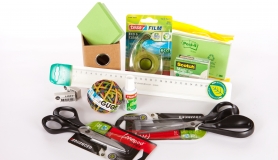Are we getting it right? Are we hindering or enhancing our child’s development? Is that bossy woman we got speaking to at the swings actually correct that the choice we’ve made is the wrong one?
With the advent of the Internet there is an extraordinary amount of information about parenting. Sometimes it’s a godsend – just type in a subject heading and you can find an answer in a matter of minutes. But it’s not just information we discover but fiercely held opinions and angry judgement. In the midst of it all, it can be hard to hear your own intuitive voice, especially when you’re a new parent. Suddenly our lives are full of well-meaning (and not so well-meaning) relatives and friends with ideas on how to raise a child.
There are many ways in which we can honour our parenting choices and those of others. Everyone is on their own unique journeys and it helps to remind ourselves of that when people are making different choices around us. Here are ten ways to keep the choices you make for your family heart-centred and right for you:
1. Don’t judge others
As easy as it can be to slip into judgement, avoid it. If we want to promote a culture of respect and understanding amongst parents, we have to actively live that truth. Even when we’ve read a wealth of books on attachment parenting and thus feel well-placed to deliver that damning comment on a parent who bottle feeds or uses controlled crying, it is not fair to do so and expect not to be judged in return. All parents are muddling through doing the best they can with the emotional, physiological and intellectual resources they have at the time. I once saw a group of women in a café, all with babes in arms and all staring out a bottle-feeding mother at the other end of the room. It was a damning indictment of just how damaging judgement can be. Who knows why the mother was bottle-feeding? Whatever her reasons, I’m sure she had her own guilt to contend with without the condemnation of her sisterhood. We all want the best for our kids and most of us strive to provide that, but sometimes we struggle because of other pressures – relationships, financial reasons, health problems, sheer exhaustion – and do a ‘good enough’ job. That’s when we need support, not judgement. So offer resources you’ve found helpful if you feel they will be well received, but don’t destroy a friendship by preaching unless you perceive real threat to a child’s wellbeing.
2. Agree to disagree
In the course of your parenting journey, you will come across people who hold different opinions on raising children. That’s part of life’s rich tapestry, and without differing opinions, the world would be a very dull place indeed. But sometimes those differing opinions threaten to ruin a friendship, especially where either party is determined to change the other’s mind. It can be helpful then to honour and release your differences. This happened to me when a friend who had, alongside me, decided not to vaccinate her son then changed her mind and took him to the doctor for his jabs. We tentatively began to talk about it but then realised it was such an emotive subject for us both that we were better off leaving it. We had both made our own decisions based on research and instinct and we agreed to leave it at that. There’s an unspoken agreement between us now that some subjects are best left, and our friendship continues to flourish.
3. Let it go
Someone said to me recently that one of the situations she dreads the most is at the in-laws when she’s had a few glasses of wine and the conversation turns to the precious grandchildren. Chances are, if you’re attachment parenting, you’ve made some decisions that would be considered pretty radical in the eyes of an older generation, such as choosing not to vaccinate, co-sleeping and extended breastfeeding. These choices have been known to seriously aggravate relatives! One reason this is the case is because by choosing one style of parenting, it could be perceived that we’re condemning another. And an older generation may feel this is a condemnation of their own parenting. Mothers especially may secretly wish that they had had the information and resources available to have parented differently themselves. As we’re all, at any given time, a complex mix of our emotions, experiences and regrets, it can help to show compassion to judgemental relatives. Stand strong in your convictions but don’t feel you have to defend them if you don’t want to. Next time someone makes a snide comment about the fact you’re still breastfeeding or home-educating your children, choose to let it go. This isn’t a passive response but an empowered one. If you see an opportunity to share your knowledge, take it, but if in doubt save your energies for conversations that feed your soul rather than make your blood boil.
4. Make time for intuition
Often the best answers don’t come from books but from our own deeply held intuition. Intuition has had something of a bad press for a long time, considered a wishy washy alternative to hard, scientific fact-based research. But so much of parenting is about intuition and it is often when we become parents that we begin to really hone this skill. We learn to sense our child’s non-verbal cues, we instinctively sense when a situation is unpleasant or even dangerous. Suddenly these things become far more pressing when we have another little life to protect and intuition would have been a skill that saved lives in the times of our ancestors. So when questing for answers to that parenting decision that has been tying us in knots, it can help to put aside the books, the internet, the advice from friends, and to listen to what our inner emotional compass is saying. What feels right for you and your child at this time? If you’re someone who finds themselves deferring to authority, intuition can be an even more important skill to learn. Perhaps your child’s school or doctor has suggested something that doesn’t quite feel right, but that you feel you should go along with because they know best, right? Wrong. You know your child better than anyone, and your instincts are likely far more attuned than the latest bit of scientific research. When faced with an impossible decision, make time to be still and quiet and listen to the calm voice within.
5. Listen to your greatest teachers
When all is said and done, it is our children who will show us the way. There are moments when we get so caught up in our own heads, in whether we’re doing the right or wrong thing, that we forget the simplicity and immediacy of our child’s reactions and how much they have to teach us. Say, for instance, that you have taken your child out of school because you feel home-education is the way forward for your family. You experience paroxysms of doubt as people line up to tell you what a mistake you’re making. Your child is listless, uninterested in learning and has fallen behind their peers. You lie awake at night wondering if you have made a terrible mistake, how your child will feel about having to return to school after months away, how you will feel having to hang your head and say ‘I got it wrong’. Then, out of the blue, you discover your child voraciously reading their way through a pile of books. They look up at you with a huge smile on their face and ask if you can visit your local museum to find out more about dinosaurs because they want to do a project on them. It is at moments like this that we have to recognise the wisdom of the child. If we get out of their way, they will show us the way. They are honest, sometimes breath-taking so, such as when they look us frankly in the eyes and tell us to ‘stop worrying’! And, after all, when we are making parenting decisions, we are making choices for these amazing individuals whose lives we are blessed to share and guide – they are part of the decision-making process too and will usually show us what they need.
6. Surround yourself with validators
One of the best ways to affirm your parenting choices is to seek out friends who see things the same way. People you can have a laugh with and engage in conversation that stimulates and encourages. Some friends make us feel good just by being with them, others challenge us constantly and can make us feel depressed. That’s not to say that sometimes the challengers aren’t useful – at times it takes someone questioning our choices to help us clarify them – but there are other times when being with like-minded people is best for both us and our children. From a shared perspective, ideas, support and even groups flourish and grow and we leave meet-ups with these people feeling fired up and ready to take on anything life might throw at us. Groups of like-minded parents also bring unique perspectives that help us to see why we make the choices we do. Those with older children might be able to guide us from their own experience whilst we can talk to others who are facing similar challenges at the same time. Validators can also take the form of favourite books that speak to the soul, as if the author were sharing a cup of tea and a chat with us.
7. Love and accept yourself
In our darkest hours, we parents are prone to beating ourselves up. We look at the areas where our child might be struggling and blame ourselves – ‘if only I’d done it differently’. These are the times we really need to boost our self-confidence, to look at the bigger picture and congratulate ourselves on our parenting so far. Perhaps we didn’t have the time or energy to devote to our child at a particular time and ended up losing our temper, or not listening to them properly. We’re not superhuman and we all make mistakes. Take steps to resolve the situation as soon as possible and apologise if you need to, explaining your feelings if appropriate. This is a good lesson for children to learn anyway – adults are fallible but the honourable, loving response is to take immediate steps towards healing. Guilt is something of a shadow for most parents, threatening to block out rational thought in a crisis. So finding ways to cope with guilt is an important first step in loving yourself as a parent. If it is there, recognise it and resolve to let it go.
8. Arm yourself with knowledge
Find those parenting books that resonate. Seek out the websites and forums that support and encourage. When faced with difficult parenting decisions, knowledge is power, especially when you find yourself challenged on all sides. Of course, at times too much information can overload and cause more anxiety, so knowing where to draw the line and stick to intuition helps too. But if you find yourself up against a pushy health visitor armed with authoritative pamphlets on how you should be raising your child, being able to spout some useful facts enables you to retain a sense of control. Some subjects such as vaccination really deserve a thorough investigation. I admit I find it baffling when people just blindly go along with the mainstream without questioning its validity especially with decisions that have a major impact on children. But just as baffling are people who reject everything without fully examining it first. Before we make major life decisions for our children, we should really commit to finding out as much as we possibly can so that our choices come from a place of knowledge as well as love and respect.
9. Live your truth
Find your parenting mantras – the ones that make you feel happy and connected – and then set about living them in your daily life. Whatever your parenting choices are, they should come from a place of integrity. They’ll adapt and change as you and your family grows. There’s a good chance you’ll look back on chapters of your family’s life with newfound knowledge and see that there was a different way of approaching situations. But we’re always learning and always bringing new aspects of ourselves to the table, so an openness to change is important. Find ways of being in the world that feel the most connective, the most joyful and heart-centred, and the rest will follow. Part of this is accepting that everyone is different – both parents and children – and adapting our approaches accordingly. What works for one of our children might not be quite right for another. What is relevant for our friends or relatives on their parenting journeys may not be what ticks our boxes right now. In terms of living your truth, children will always look up to an adult who not only talks the talk, but walks the walk.
10. Parent from a place of joy
If you approach your parenting from a place of joy, the anxiety falls away. It’s a state we strive towards and often don’t achieve because of conflicting pressures in our lives. But when we truly step into that place of being present for our children, alive in the sound of their laughter, our hearts blissfully and truly connected to theirs, everything makes sense. We no longer have to question whether we’re getting it right or wrong. We can just be. These moments might strike when you wake up next to your child in the morning, their sweet breath on your cheek, or when you’re playing together outdoors completely unaware of time, or when you share a conversation with them that is deep and profound. Those are the times when it all falls into place and we know we are doing the absolute best we can do. Making time for fun – complete, unbridled fun away from the pressures of being here or there, or achieving this or that – enhances your family’s life enormously and creates the kind of connection humans crave so deeply.







